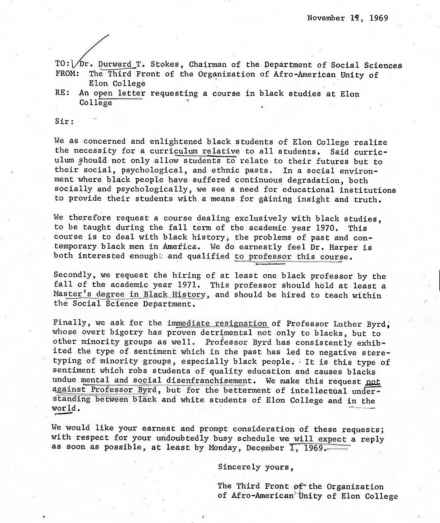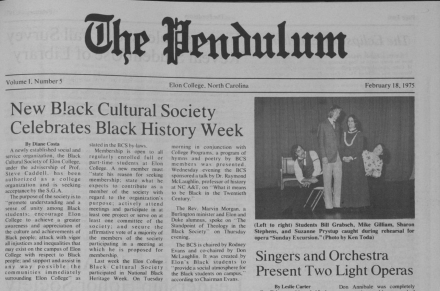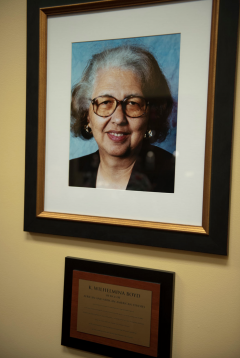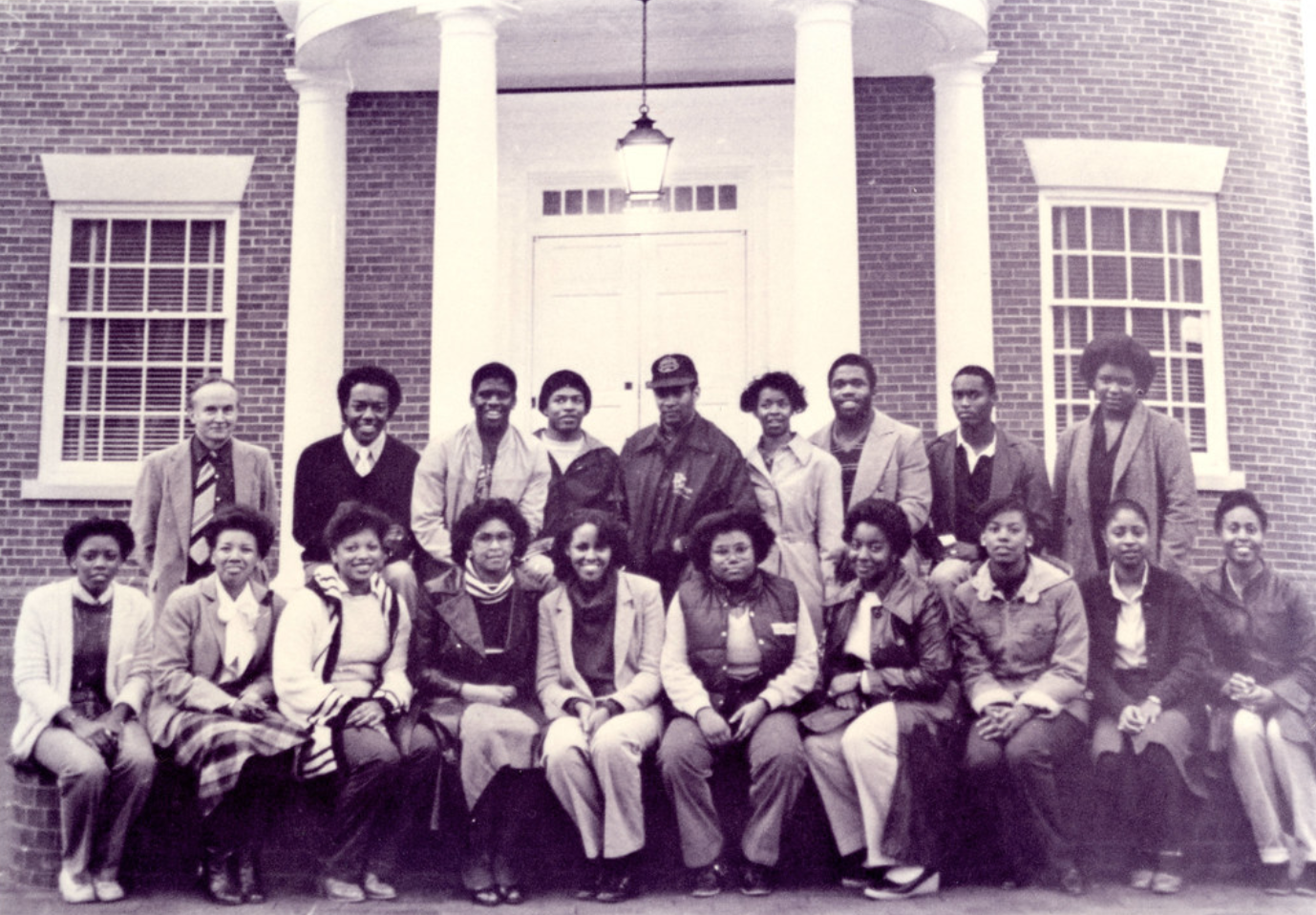In this edition of #ElonTBT, we mark the start of Black History Month with a look back at an important moment in Elon’s black history and how it shaped the university’s curriculum today.
In the #ElonTBT series, the Elon University News Bureau, along with Archives & Special Collections, will flash back to the past to take a look at Elon over the years. You will find videos, newspaper clippings, photos and more to celebrate Elon’s past, while looking ahead to the future. Follow along on Today at Elon and the university’s Twitter, Facebook and Instagram pages every Thursday to see what we dig up.
In 1969, Eugene Perry became the first black student to graduate from Elon. His accomplishment served as evidence of changing times and was followed by what Elon’s black student community saw as another opportunity for change.
As black student enrollment at Elon continued to increase throughout the 1960s, so too did interest in a black studies curriculum. Student members of the Third Front for the Organization of Afro-American Unity, the education wing of a black advocacy organization founded by Malcolm X and other black leaders, wrote an open letter in 1969 to then-Chair of the Department of Social Sciences Durward T. Stokes, urging him to introduce a course dealing exclusively with black studies at Elon.

The Nov. 19, 1969, letter began, “We as concerned and enlightened black students of Elon College realize the necessity for a curriculum relative to all students. Said curriculum should not only allow students to relate to their futures but to their social, psychological, and ethnic pasts.”
The contents of the letter and the events that followed have been researched and compiled into an online exhibit by Lumen Scholar Emily Lange ’21 and Archivist and Assistant Librarian Libby Coyner. The 2019 exhibit, “Black Studies Protests: Elon University’s journey to an African and African-American Studies Program,” uses letters, newspaper articles and other resources to detail the effort to bring a black studies program to the Elon campus.
“The letter caught my attention because of its demands, the implication of student organizing and support, and the fact that the formation of a Black Studies course did not occur until nearly a decade after the initial letter,” Lange said.
Lange and Coyner set out to give a more accurate account of the struggle to introduce black studies curriculum at Elon. Their work focuses on the history of the movement as told through the voices of the students who fought to bring the program to campus.
“The official history of Elon tells a very different story, and so this was a chance to look at the original materials and find out what really happened,” Coyner said.
In the 1969 letter, students requested that the black studies course offer its first class in the fall of 1970 and be taught by Professor Charles Harper, who students felt would be qualified to teach the subject. The letter also urged the Social Sciences Department to hire Elon’s first black faculty member and for the “immediate resignation” of a professor accused of “overt bigotry.”

Students continued to make their voices heard on the issues throughout the late 60s and 70s. They produced several articles and opinion pieces about the requests in student newspapers, and in 1974, students formed the Black Cultural Society to create a sense of unity, awareness and appreciation among Elon’s black students.
As students continued to pressure the administration for a black studies course, they looked to their peers for help. In 1978, the Black Cultural Society wrote a letter to the Student Government Association, asking the organization to support their efforts to bring a black history or literature course to Elon.
By the following year, Elon offered its first black studies course. Professor Andrew Angyal taught Modern Black American Literature in 1979, 10 years after students sent their first open letter to the Department of Social Sciences.

Black studies at Elon continued to grow over the years, as African and African American studies was later recognized as an independent minor in 1994 and then as an interdisciplinary minor in 2000. The department was led by Wilhelmina Boyd, who was hired in 1987 and was Elon’s first black tenured faculty member.
“The protests thus helped shape how the university interacts with student calls for inclusivity and representation, highlighting that while it may take beyond a single student’s years to create change, as a group, students are still a force for change at Elon,” said Lange, whose study of the protests has led her to pursue a career in archival.
To read Lange’s entire report, including the original 1969 letter, newspaper articles and other materials, click here.
Do you have any special pieces of Elon history? Share your photos and videos with us via email at news@elon.edu or using the hashtag #ElonTBT on Twitter, Facebook and Instagram.



